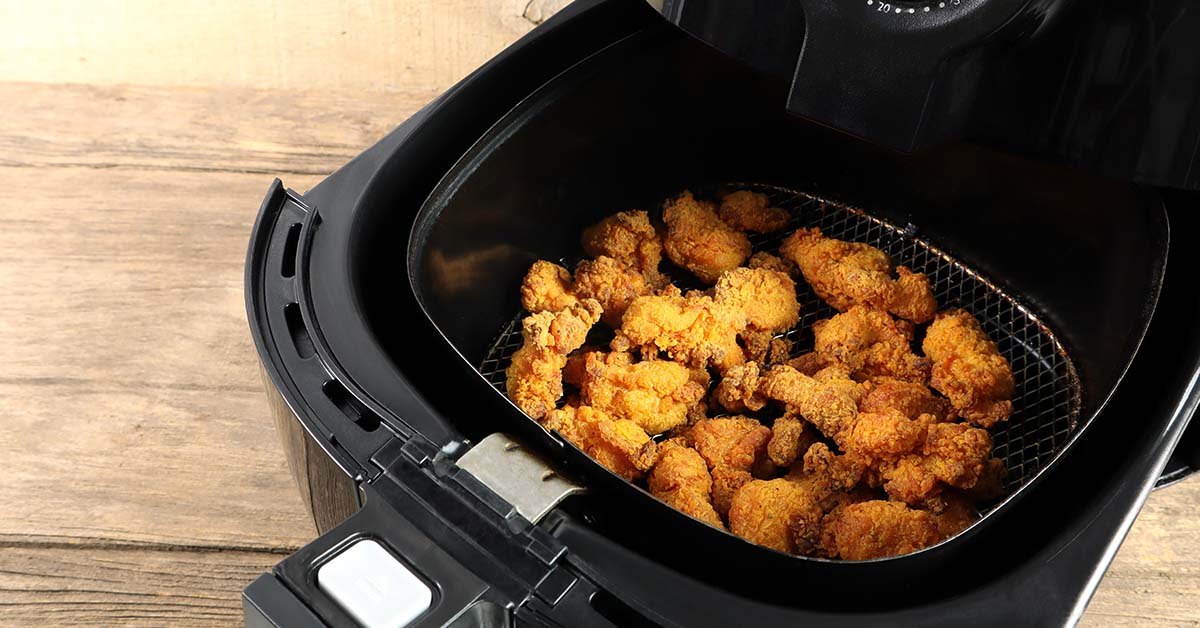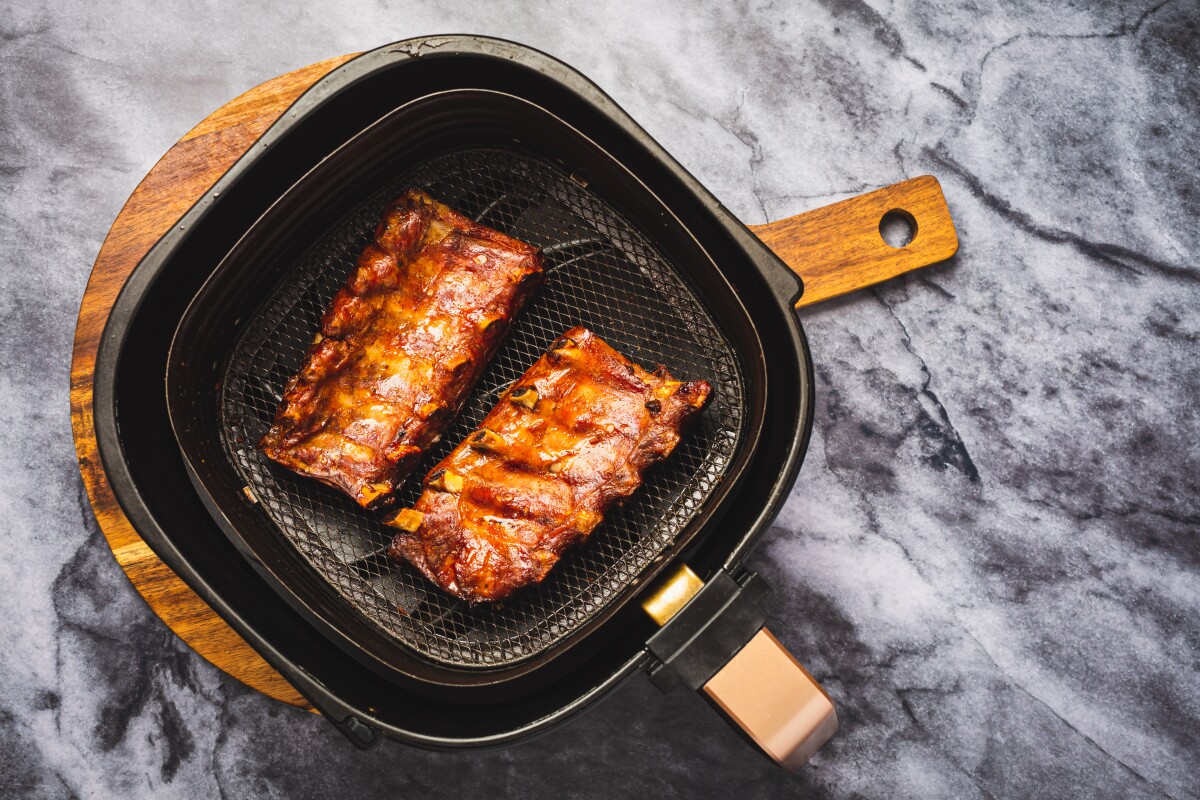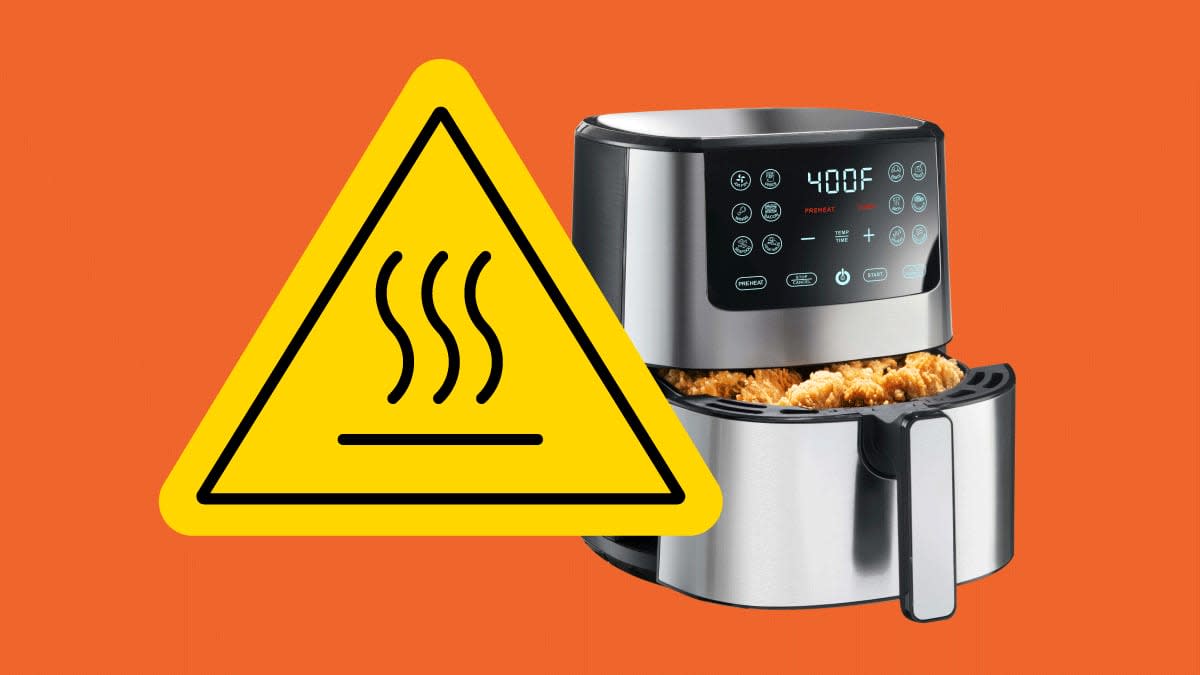Air fryers have become one of the most popular kitchen appliances in recent years, praised for their ability to cook crispy foods with less oil. However, like any electric appliance, air fryers can pose potential safety risks if not used properly. Health and safety experts are advising consumers to take a few precautionary steps to ensure their air fryer use remains both safe and effective.

What Is an Air Fryer?
An air fryer is a countertop appliance that uses a high-powered fan to circulate hot air around food, cooking it quickly and giving it a crispy exterior similar to deep frying. The rapid air circulation creates a Maillard reaction, which browns the surface of food without submerging it in oil.
Air fryers are commonly used to prepare foods like:
-
French fries
-
Chicken wings
-
Vegetables
-
Fish fillets
-
Frozen snacks
Because they require little or no oil, air fryers are often marketed as a healthier alternative to deep frying.
Why Are Experts Warning About Potential Safety Risks?
Experts, including those from Consumer Reports and various fire safety organizations, have issued warnings about improper use of air fryers, which may result in hazards such as overheating, electrical malfunctions, or even small fires in rare cases.
Here are some of the most frequently cited concerns:
1. Overheating and Fire Hazards
Air fryers, especially low-cost or generic models, can overheat if not used according to the manufacturer’s instructions. The U.S. Fire Administration (USFA) has noted that many kitchen fires are caused by unattended cooking or using appliances on unstable or flammable surfaces.
Some units have been recalled in the past due to overheating risks. For example, COSORI voluntarily recalled over 2 million air fryers in 2023 due to a wiring fault that could cause the units to overheat or catch fire. Consumers are advised to check if their air fryer has been subject to any recalls via the Consumer Product Safety Commission (CPSC) website.
2. Nonstick Coating Breakdown at High Temperatures
Most air fryer baskets are coated with nonstick materials, typically made with polytetrafluoroethylene (PTFE) or similar compounds. If these coatings degrade at high temperatures or with prolonged use, they may release potentially harmful particles or fumes.
The Food and Drug Administration (FDA) considers PTFE generally safe when used appropriately. However, overheating (above 500°F / 260°C) can damage the coating, especially if the appliance lacks a proper temperature regulator.
How to Use Your Air Fryer Safely: Tips from Experts
According to appliance engineers and consumer safety organizations, safe use begins with awareness and maintenance. Follow these key guidelines:
Read the Manual Thoroughly
Each air fryer has unique instructions. Be sure to understand temperature settings, safety warnings, and recommended cleaning practices for your specific model.
Never Leave the Air Fryer Unattended
Unattended cooking is one of the leading causes of kitchen fires, according to the National Fire Protection Association (NFPA). Always monitor your appliance while in use.
Keep Your Air Fryer on a Heat-Resistant, Flat Surface
To prevent tipping and overheating, place your air fryer on a stable, non-flammable countertop, away from walls and flammable objects like kitchen towels or curtains.
Clean the Basket and Tray After Each Use
Food debris and grease can accumulate quickly. Cleaning the basket and inner components regularly helps prevent smoke production, burnt odors, and possible fire hazards.
Don’t Use Cooking Sprays Containing Propellants
Avoid aerosol sprays directly on the nonstick basket, as they can damage the coating. Instead, use oil misters or brush food with a light coating of oil.
Avoid Overfilling the Basket
Overloading the fryer reduces air circulation, which can lead to uneven cooking and increased heat buildup. Refer to the manual for maximum fill lines.
Monitor for Signs of Damage
If you notice frayed cords, cracked baskets, malfunctioning buttons, or unusual smells/smoke, stop using the air fryer and contact the manufacturer.
Are Air Fryers Safe to Use Daily?
When used properly, air fryers are generally safe for routine household cooking. The FDA, Consumer Reports, and various appliance safety tests indicate that most air fryer brands are compliant with safety standards. However, long-term performance and safety depend heavily on:
-
Quality of materials
-
Brand reliability
-
User care and maintenance
Is There a Health Risk From Cooking in Air Fryers?
A common concern is the formation of acrylamide, a chemical that can form in starchy foods (like potatoes) when cooked at high temperatures. According to the American Cancer Society, acrylamide is found in many cooked foods and is not unique to air frying.
To reduce acrylamide formation:
-
Avoid overcooking or charring food.
-
Cook at moderate temperatures (below 400°F when possible).
-
Use parchment paper liners to reduce direct contact with hot surfaces.
While acrylamide may be a concern in animal studies, current evidence does not suggest a major health risk to humans when cooking practices are moderated.
Recall Alerts and Safety Registrations
Manufacturers occasionally issue recalls for specific air fryer models. To stay informed:
-
Visit the CPSC Recall Database
-
Register your appliance with the manufacturer using the warranty card or their official website
-
Monitor reviews and consumer feedback, especially for newer or budget-friendly brands
If your appliance has been recalled, stop using it immediately and follow the manufacturer’s instructions for refunds, replacements, or repairs.

Conclusion: Air Fryers Are Convenient, But Responsible Use Is Key
Air fryers can be a healthy and efficient addition to your kitchen, but like any appliance, they come with risks that require responsible use. Staying informed about safety recommendations, conducting regular maintenance, and using the appliance according to the manufacturer’s guidelines are all essential to ensuring your air fryer is safe and effective.
For those unsure about whether their air fryer is safe, consulting with an appliance expert or checking for recall notices is a good first step. Always prioritize safety — especially when using appliances that involve heat and electricity.
Verified Sources:


